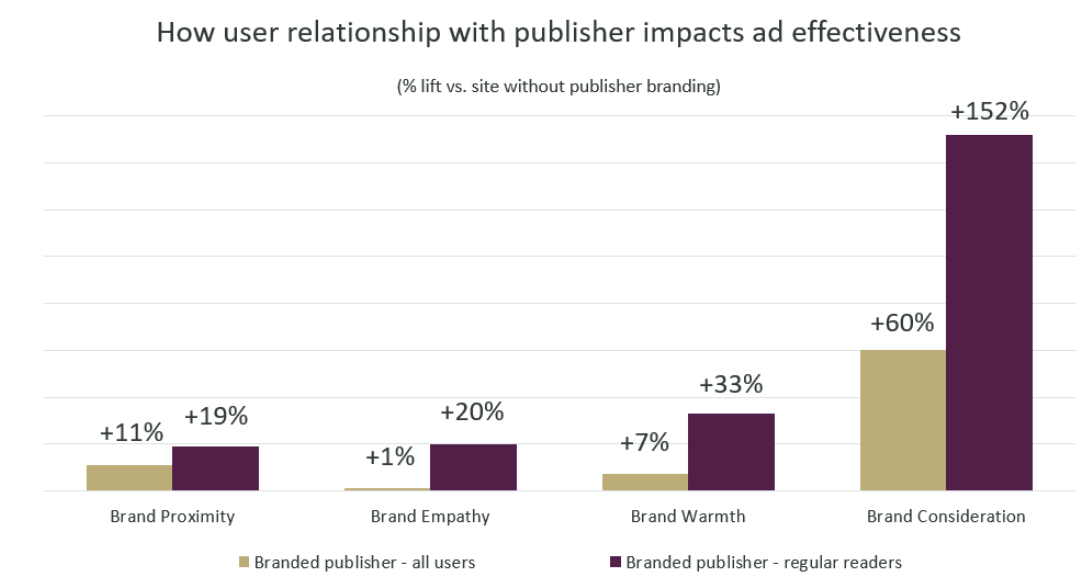Some Millennials Would Prefer Robot Politicians; Reader/Publisher Relationship Influences Ad Effectiveness
by Hugh Williams on 7th Dec 2017 in News

ExchangeWire Research’s weekly roundup brings you up-to-date research findings from around the world, with additional insight provided by Hugh Williams, senior data analyst, ExchangeWire. In this week’s edition: Some millennials would prefer robot politicians; Reader/publisher relationship influences ad effectiveness; and Brits unhappy at hijacking their computers for Bitcoin mining.
Some millennials would prefer robot politicians
More than four in every ten (43%) consumers prefer to deal with a machine than a real person, according to the Mindshare Trends Report.
The report shows that consumers of all ages are embracing technological advancements:
- 46% are willing to use facial recognition
- 57% agree that machines will be able to do tasks more effectively than humans
- A third of millennials would prefer an artificially intelligent politician
- 52% of 18-34 year olds think it is sometimes easier to deal with a machine than a real person

Another prediction the report makes for 2018 is a higher level of scrutiny from consumers on how their personal data is being used. Eight out of ten (80%) would like more control over what brands do with their data, though 58% agree to terms and conditions without reading them. There is a stronger trust in Amazon when it comes to this data – 38% of people would choose to give Amazon access to their data over Facebook, Google, and Apple (rising to 48% of 65+).
Reader/publisher relationship influences ad effectiveness
The relationship a reader has with a publisher has far more impact on the effectiveness of online ads than the surrounding editorial content, finds a study by Inskin Media, Research Now, and Conquest Research.
This suggests that concerns around brand safety may be misunderstood. The study reveals that ads on the publisher-branded sites increased consideration for the advertiser by 60%, compared to the ads on the site without publisher branding.

Among readers with a close relationship to the publisher, consideration for the advertiser is 152% higher than among those who see the ads on the site without publisher branding. Alongside this, advertiser brand warmth is 33% higher, brand empathy 20% higher, and brand proximity (how close people feel to a brand) 19% higher.
In contrast, the report finds no systematic pattern to suggest that editorial content impacts the ad – be the article positive or negative, or whether it has a similar theme to the ad. For example, a supermarket food advert next to an article about obesity does not overtly affect any brand metrics at all.
Brits unhappy at hijacking their computers for Bitcoin mining
Two-thirds (65%) of Brits don’t like the idea of their computers being hacked by those mining Bitcoin, according to a study by Reboot.
![]()
Instead, the overwhelming majority of respondents (84%) say they would like to be asked for permission before the computer is used for Bitcoin mining. A similar proportion (83%) would be worried about the security of their computer being compromised as a result of Bitcoin mining.
It is not just individuals the British public doesn’t want mining Bitcoin. Almost seven-in-ten (68%) would be unhappy with companies using their computers processing power to analyse or mine Bitcoins. Meanwhile, 62% fear that Bitcoin mining could damage their computer in some way.
One of the main concerns of Bitcoin mining is the financial reward. Seven-in-ten (70%) of Brits say they would be concerned about who gets the money raised from Bitcoin mining on their computer. Because of this, nearly half (48%) of respondents would not be open to Bitcoin mining on the computers, even if it meant reduced exposure to online adverts.
Artificial IntelligenceBrand SafetyDisplayMobile








Follow ExchangeWire